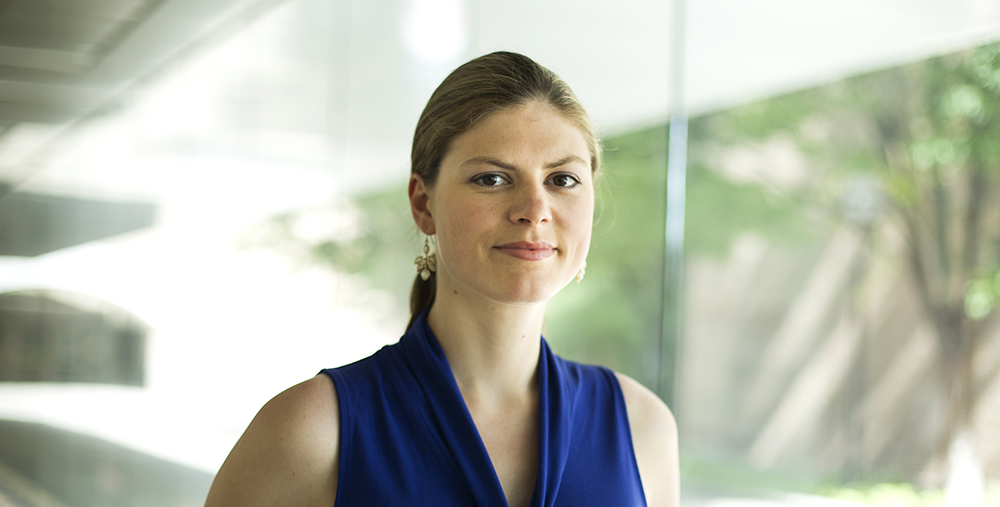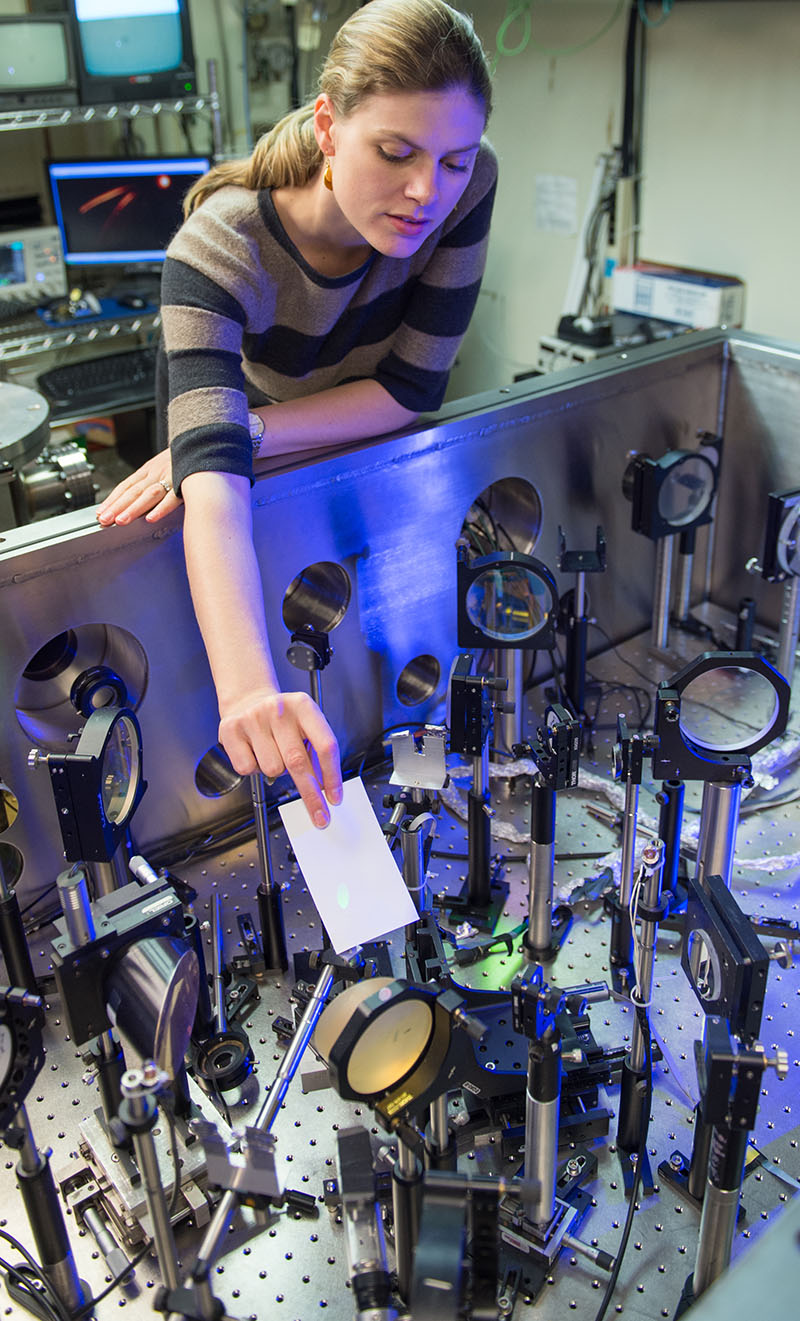Louise Willingale advancing scientific knowledge of plasmas
Using some of the best lasers in the world, Willingale is shedding light on the impact of solar events on Earth.

 Enlarge
Enlarge
Prof. Louise Willingale, assistant professor in Electrical and Computer Engineering, was awarded an NSF CAREER award for her research project “Relativistic Electron Driven Magnetic Reconnection.”
Magnetic reconnection is a fundamental process in which magnetic energy in plasmas is converted to heat and kinetic energy, while causing intense particle acceleration, sometimes to nearly the speed of light. It occurs during high-energy-density phenomena such as solar flares and auroras.

 Enlarge
Enlarge
Magnetic reconnection typically occurs in Space, making it difficult to study. Willingale plans to conduct high-energy-density laboratory experiments at the University of Michigan T-cubed laser facility and with the HERCULES laser (recently upgraded), both housed in the Center for Ultrafast Optical Science, to shed light onto this little understood process and test the accuracy of existing theories. The T-cubed and HERCULES lasers have already led to the discoveries of many high-field science effects.
Understanding the phenomenon better should help us be able to better plan for such events in the future and, more importantly, mitigate their impact. For example, giant solar flares in the past have been accompanied with coronal mass ejections (CMEs) which reached the earth, and for a time interfered with GPS signals and radio communications. These events can also interfere with orbiting satellites and power systems.
Magnetic reconnection is also relevant to the process of nuclear fusion, which promises an almost inexhaustible source of energy – if the engineering challenges can be overcome.
In addition to the scientific inquiry, this award will support the educational and outreach goals of improving the climate for women and other underrepresented groups in Science, Technology, Engineering, and Mathematics (STEM) disciplines in general, and in plasma physics, in particular.
Prof. Willingale’s research interests include intense laser-plasma interactions, laser-driven ion acceleration, relativistic laser propagation through underdense and near-critical density plasmas, and proton radiography to study electric and magnetic fields generated during the laser-plasma interactions.
She received her PhD in Plasma Physics at the Imperial College, London, and joined the Department of Nuclear Engineering and Radiological Sciences in 2008 as a postdoctoral researcher, and in 2011 as an assistant research scientist. In 2014, she joined the Department of Electrical Engineering and Computer Science as an Assistant Professor. She has taught the undergraduate course Principles of Optics, and developed and taught the graduate course, Laser Plasma Diagnostics.
Additional Information
The CAREER grant is one of the National Science Foundation’s most prestigious awards, conferred for “the early career-development activities of those teacher-scholars who most effectively integrate research and education within the context of the mission of their organization.”
Prof. Willingale’s award is in the NSF Division of Physics, under the Plasma Physics program.
In the Media
Why space weather is being made in the lab
Lousie Willingale, assistant professor ECE, discusses her research using HERCULES to study magnetized space winds in a lab.
A stellar achievement: Magnetized space winds in the laboratory
The international team that includes Prof. Louise Willingale is investigating the role of intense magnetic fields dragged by high-speed plasmas through astrophysical environments. HERCULES was used in the experiments.
 MENU
MENU 
